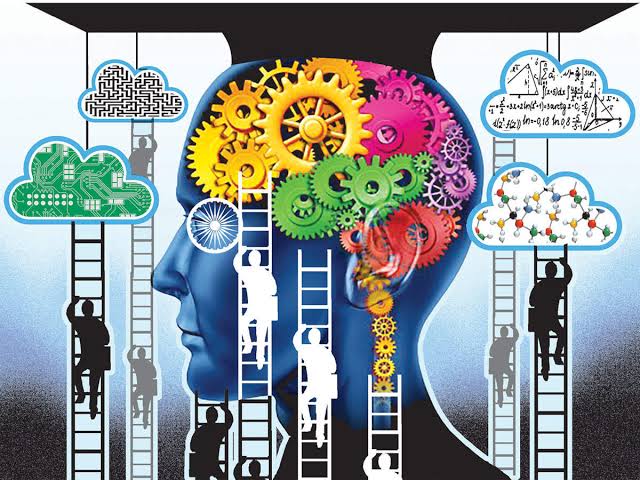The COVID-19 crisis that has gripped the world continues on its rampage, destroying lives and devastating business and industry. There is no segment of business industry or services that has not been adversely impacted by this crisis.
To understand how this crisis is affecting the chemical and allied industries, and what steps industry, and government should take to mitigate the damage, and how this will pan out, Chemical Industry Digest sought the views of a few industry captains, which are reproduced here.
Chemical Industry Digest (CID): In what all ways are the COVID-19 crisis impacting the chemical and allied industries and your industry in particular? What is your assessment of the fallout or damages to the industry in the short as well as long term? To what extent are the detrimental effects on the chemical industries affecting India’s overall economy? Do you foresee lot of layoffs, salary cuts and unemployment?
Pramod Chaudhari (PC): As a leader in the technology-led EPC solution provider for process plants, Praj is experiencing a slowdown in the project and capital goods industry. We therefore believe that the chemical and process industries are not exempt to what is happening in India and across the world as a result of the lockdown.
 Two recent events, COVID-19 and the drop in crude oil prices have had serious consequences. The former has affected global trade and manufacturing due to manpower shortage/unavailability in the short term, and the latter may benefit the downstream chemical industry.
Two recent events, COVID-19 and the drop in crude oil prices have had serious consequences. The former has affected global trade and manufacturing due to manpower shortage/unavailability in the short term, and the latter may benefit the downstream chemical industry.
We are impacted by lowered demand and productivity and potentially tightening of liquidity. With supply chains at a standstill, factories closed, and people confined to their homes, the whole value chain has come to a grueling halt. Organizations are compelled to relook at their business operations including business plans.
The adverse impact on the projects and the capital good industry is bound to have a detrimental effect as it is a frontline contributor to the Indian economy. Regarding fallout of the Covid-19 pandemic, a quantification of social and economic damages is not possible at this stage until the ongoing crisis is over.
Regarding layoffs and unemployment, organizations are implementing initiatives such as tightening cash management, minimizing overheads, freezing new hires, salary adjustments, deferment of bonus and incentives, etc.
 Anand Srinivasan (AS): No industry or segment has gone unscathed by the adverse effects of the COVID-19 outbreak, including the chemical industry. As the effect of coronavirus is increasing, production facilities of the majority of organisations and allied industries have been halted. We are aware that the chemical industry has an essential role in the production of various products such as plastics, fertilizers, medicines, packaging, and even in the manufacturing of the essential PPE kits which is currently the need of the hour.
Anand Srinivasan (AS): No industry or segment has gone unscathed by the adverse effects of the COVID-19 outbreak, including the chemical industry. As the effect of coronavirus is increasing, production facilities of the majority of organisations and allied industries have been halted. We are aware that the chemical industry has an essential role in the production of various products such as plastics, fertilizers, medicines, packaging, and even in the manufacturing of the essential PPE kits which is currently the need of the hour.
The fact that only the production of essential commodities is currently permitted, the overall demand for chemicals used in other facilities has declined. Therefore the fallout on the chemical industry in the short term is that the continuing spread of COVID-19 across the globe is likely to impact the demand for chemicals. In the long term, the expected recovery timeline of the industry would be based on the future scenario, which is difficult to predict at this point.
With the spread of this pandemic, there is a rise in the demand for packaging materials which plays a vital role to prevent contamination of food, medicine, personal care, and medical products. As a result of which there is a significant increase in the demand for the packaging industry.
The chemical industry contributes about 7 percent to India’s GDP. However, in the current situation, the detrimental effects on the industry cannot be fully ascertained due to supply chain disruptions. Once the production commences, the situation may see a better outlook since many chemical companies are already having a large order booked from clients.
Ravi Kapoor (RK): The COVID-19 crisis had resulted in a total shutdown since end of March with certain essential industries allowed to function and a slow start up of some other industries. The chemical industry is the backbone of the most of the manufacturing industries as chemicals are required across the board. Even pharmaceutical industry would need the basic chemicals to carry out their manufacturing activity as they cannot function without the basic chemicals like Caustic, Chlorine, Sulphuric Acid, etc. So effectively there is a link up in the whole value chain of products and the low capacity utilization of chemical industries was also hitting the other industries as well.
 The chemical industry is one of the key pillars of India’s overall economy and as such this was going to have a serious effect which is widely written about and the drop in GDP very clearly articulated. In the meanwhile since than the industry has been able to get going in most States and are close to reaching capacity production.
The chemical industry is one of the key pillars of India’s overall economy and as such this was going to have a serious effect which is widely written about and the drop in GDP very clearly articulated. In the meanwhile since than the industry has been able to get going in most States and are close to reaching capacity production.
During the recent past the chemical sector had done quite well and the publicly listed companies providing a good return to the shareholders due to increased profitability etc. The slowdown in China also contributed to the success of certain companies which had competing products and these did extremely well. However, during the last 2 quarters of the previous year the industry did show signs of a slowdown and the COVID-19 effect was nothing short of a disaster for many of the companies. The issue of layoffs, salary cuts and unemployment would very much depend on what happens in the near and mid future. Most of the companies today are sucking up the losses and generally paying its employees. However, the future could see salary cuts and if the situation doesn’t improve possible layoffs which could result in unemployment as chemical companies are very much dependent on capacity utilization to absorb their fix costs and it is generally felt that this could be the main challenge.
CID: How will the industry ride out this storm? What measures would you suggest that the chemical industry undertake to limit the damages as well as recoup? Are you considered as an essential service and therefore are able to continue your manufacturing in your plants/and/or your service activities? Post COVID-19 what plans have you made to open up your plants and offices? What steps are being taken by your company to face the situation including limiting the distress on your workforce?
Pramod Chaudhari: Projects and the capital goods industry will be able to weather this storm with –
(a) Strategic interventions by the government – policies and economy revival packages.
(b) Strong collaboration between stakeholders – honouring contractual commitments & lending a helping hand where necessary, esp. MSMEs and informal sectors.
(c) Innovative business models –remotely delivering solutions to create value for customers.
Organizations should be lean, agile and adaptable to the new normal environment. Frequent communication to comfort all stakeholders, especially customers, investors and employees is critical in this testing times. A thorough assessment of business environment and scenario planning will help organizations optimally plan and deploy their resources.
We are monitoring and complying with the central, state as well as local directives about reopening of plants and offices. A cross functional task force comprising senior management has compiled a comprehensive plan and operations manual aligned with Saptapadi guidance issued by Honorable PM of India. We are preparing to resume business operations in line with government directives.
We are continuously benchmarking our Health Safety Environment practices and processes with global best practices, which include use of sanitizers, temperature checks, uncrowded transport, PPEs, adequate distancing at work etc. We have developed in-house a special technology aligned with WHO guidelines to manufacture hand wash sanitizers (HWS) that help combat spread of corona virus.
Anand Srinivasan: India is a very resilient country and has overcome many economic obstacles in the past with surprising results. The chemical sector is a diversified industry with over 80,000 commercial products which has been clocking an annual growth rate of 8-10%. According to the Department of Chemicals and Petrochemicals, the sector is projected to double its size to $300 billion by 2025.
As the government has already shifted focus to the economy, the industry too is slowly getting ready to commence operations as permitted. Most companies who fall under the essential service criteria have already restarted their operations either fully or partially, which is a sign that they will be less impacted even if the lockdown continues.
Certain products that Covestro manufactures also come under essential services category, and we are operating as per guidelines provided by the GoI. Our manufacturing plants in Ankleshwar, Greater Noida and Cuddalore have got permission from the authorities to restart the operations for the manufacturing of the essential goods. Going forward as well, we will follow the standard operating procedures (SoP) laid down by the government to open up our operations as directed.
The workplace environment is evolving rapidly due to Covid-19 as office locations have suddenly expanded and people are working from home. At Covestro, we firmly believe that our diverse and motivated workforce is at the heart of our company’s success and that employees need to feel connected and fully engaged. Keeping this in mind, we have launched virtual interactive initiatives to instil fitness, resolve, safety and family-fun for employees. The initiatives that we have launched are reflective of our core belief in the overall well-being of our employees which are aligned to the Covestro values of Curious, Courageous, Colorful. These values help catalyze positive spirit, hope and cheer among the employees.
Ravi Kapoor: The chemical industry is a critical component of the manufacturing hub and needs to find a way to sustain itself. The main issues are a combination of the effects of the shutdown affecting the fixed cost spread , shortage of manpower including contract workers, working capital issues and finally the drop in demand both local and exports. Companies will need to be financially prudent and cut cost across the board, ensure their working capital requirements are met for the next 6 months or so considering a lower top and bottom line and prepare for the worst.
Heubach is a pigment and preparation manufacturing company and we are in the business of manufacturing High Performance and speciality pigments which are exported to more than 60 countries across the world. Pigment manufacturing is relatively a people intensive industry especially in India and in case there are shortages of labor then this could have a detrimental effect on capacity utilization. Being an export company one of the big concerns for a pigment exporter today is the fact that the Chinese pigment manufacturers and exporters have recently been granted a relief from the Chinese Government with a refund of their tax paid from zero to 13% which gives them a very big advantage in the export market over the Indian exporter. This will effect exports from India which are presently around Rs. 5000 crores from companies which in turn employ around 10000 people and this could well add to the existing situation negatively. We have represented to the Government to consider measures to counter this else we risk losing market share and given the nature of the business this is sometimes lost forever.
Pigments are used across applications like Coatings, Inks and Plastics and one of Heubach’s most important segments is pigments for automotive, paint application. It is well known that the automotive segment is affected in India and worldwide and it is not clear when and how the recovery of this sector would happen. This will affect our business in this area, however I foresee the drop in the plastics and inks business as lower than the coating segment. Pigments used in inks are essential in many areas like printing on foil used by the pharmaceutical industry, containers for food and other essentials so it could be considered that pigments are essential products.
In this regard we are happy to report that the government was supportive and given the circumstances and the very serious nature of the epidemic we could utilize part of our capacity during the month of April having received the permission to do so from the Government and despite different kinds of supply chain problems we also managed to export our products to our customers. These are trying times for all stake holders but I am happy to report that we did manage to work under these conditions and arrange for exports to a large extent.
On way forward these times are extremely important to manage well and keep a very tight eye on the extremely dynamic situation which keeps on changing on a daily basis. The domestic demand for pigments is very low and slowly growing as the other industries also start their activity. On the export front there also is seen a slacking of demand specially as mentioned the automotive segment. Add to this the fact that the Chinese competition is fully up and running, we are in for challenging times. From my perspective the key issue is to get your manufacturing capacities going, get the manpower in and most important implement very strictly safe practices to ensure that there are no untoward incidence with regard to the pandemic. Manufacturing activity in the COVID-19 period and post this as well has to change and recognize that things are not what they use to be and companies need to adapt which I believe they are doing in the chemical sector. Safety first has to be the overriding motto and a way of life for the industry which I am happy to report that Heubach treats this as the key focus area. Manufacturing and moving towards full capacity is the second key challenge and most essential, to keep the company viable and cost effective. The challenge is the drop in demand both in domestic and international which threatens to impact sales and here I believe that companies need to carefully evaluate connected alternatives, rejigging product portfolios, entering into segments which are considered essential by adapting and finally of course tackling the situation with prudent cash management so that they can survive the coming on slot of low cost absorption, low demand, production challenges, people shortage and so on. I do believe that it will be survival of the fittest that industry would see consolidation in the midterm and companies who are fundamentally strong with good technology, good manufacturing practices, good cash management will not only survive but could find opportunities once the initial difficult period is done. I am also happy to report that we count Heubach India has been well positioned to tackle the coming on slot and of course hopefully the bad situation does not continue for long.
CID: Considering that the chemical industry is an innovation driven industry, how can the chemical industry through R&D efforts help in combating this virus?
Pramod Chaudhari: R&D functions in process industries are looking at this situation as an opportunity to develop and introduce new materials for health and hygiene to combat the spread of the virus.
The chemical industry has responded to this crisis by mass-producing cost-effective solutions for upkeep of hygiene and cleanliness for domestic and industrial applications in the form of soaps, detergents and sanitizers. It is facilitating development of vaccines, medicines, drugs that are being developed by the pharma industry eg. API. There is an attempt now by the govt and industry together to become self-sufficient for drug intermediates and KSM (Key starting material).
Hand wash sanitizers (HWS) has emerged as an effective method to suppress the spread of Covid19 leading to an exponential demand and a shortage of high quality HWS in the market. To address this situation, Praj has responded by providing open and free access to its proprietary HWS manufacturing technology. Praj Matrix, the R&D centre approved by the Dept. of Scientific and Industrial Research, GOI), has developed a unique process technology. The technology, that helps formulate alcohol into high quality sanitizers, was developed in a short span and conforms to WHO guidelines.
One of the challenges in fighting Corona is inadequate testing facilities. To help overcome this challenge, Praj has lent a high end RT-PCR system to A.G. DIGNOSTICS (one of the select laboratories authorized to conduct COVID 19 testing in Pune). The system helps in quick detection of coronavirus infection.
Praj Hi Purity, a subsidiary of Praj, is leveraging its expertise to resolve technical & maintenance issues related to high purity water systems, fermenters of pharma manufacturing unit so plants are not shut down.
Anand Srinivasan: Innovation is an important part of every aspect of life in today’s situation. Every individual, organisation and sector in its own way is helping in order to combat the spread of the virus. The chemical industry too is contributing to this effort and continues to invest in R&D to improve product quality to meet the evolving demands of the healthcare sector.
At the same time, the chemical industry provides several components used in materials that prevent the contamination of food, medicines, personal care and medical products like surface disinfectants and hand sanitizers which are extremely critical for the world today.
Apart from these, the chemical industry which is also known as Industry-of-Industries, also plays an essential role in all the sectors right from the construction sector to the healthcare sector. The Indian chemical sector is the backbone of the Indian economy and an active chemical sector can ensure that other industries continue on a growth path.
Ravi Kapoor: There are many areas where the chemical and the specialty chemical industry can innovate to develop products which can be extremely useful to fight COVID-19 and I believe that this is being done. Heubach for example is developing a copper thalocyanine derivative and checking its use as anti-microbial effect coating which would act as an inhibitor and stop the normal metabolic process which is required for growth of bacteria, virus etc. This effect includes the killing of bacteria, virus and could be very useful in applications and use in plastics and textiles which would be coated with this additive and result in excellent resistance properties. This is of course under development and I am sure that there are many other innovative ideas possible for the chemical industry.
CID: Would a long lockdown help in checkmating this virus or would it be more detrimental to business and industry?
Pramod Chaudhari: These are unprecedented times and Life Vs Livelihood conflict has engulfed all economies around the world. Given India’s large population, challenges in social distancing and inadequate public health system infrastructure, a cure is not a viable option, but prevention is. Due to timely measures by the Govt. by way of lockdown, we are witnessing a slower spread of virus. The lockdown has bought us time to improve preparedness in terms of ramping testing facilities, identifying hotspots that need sealing and focusing efforts where they are needed the most.
As we all know, the lockdown has detrimental effects over the economy as businesses and industry comes to a standstill. However, given the fact that we have about 500 Mn daily wage earners in India, we can only ill afford to keep wheels of economy clamped for long; they must be set in motion gradually and with adequate precaution, in low infection regions.
There is no sure shot formula to checkmate the virus but a data driven approach in isolating hotspots while restarting industry and businesses in a phased manner in green zones is the need of the hour.
Anand Srinivasan: The decision of the lockdown is a difficult one for any government to take, but this has been done across the world after consulting various sections of society in accordance with the global guidelines issued by the WHO. The decision to lockdown and the subsequent extension of it till 31st May 2020 by the Indian government may be a setback in terms of economic activity, but I believe it has been taken in the larger health interest of citizens. Also, with the current economic packages announced by the Government of India last week, it is expected to give stimulus to various sections of businesses. The lockdown has certainly impacted business and industry but everyone understands that the priority today is human life.
Ravi Kapoor: Any lockdown would be detrimental to business, this is clear and is being seen and felt across the country. The question is when, how and for how long a lockdown should be imposed. India reacted very fast and aggressively and the merits and demerits will always be an issue of discussion. In my opinion the lockdown had a benefit given the high level of spread maybe not to the extent we would have liked but as we have seen across the world the fact that the virus will not go away in a hurry, needs to be accepted. We need to accept this as a new way of life and handle this pandemic with the right attitude and due precautions. A very long shut down could be more detrimental than useful but as we have already seen limited lifting of the lockdown by different states depending on the intensity of the infection , is already being done. I think this is the right way but also that we will need to accept the fact that we are in for a longer battle.
CID: What steps do you expect from the government to mitigate industrial distress and revive manufacturing and services activities? What stimulus package do you expect from the government? And in particular the package of measures needed to revive MSME chemical industries?
Pramod Chaudhari: RBI has already introduced two economic revival packages in a span of three weeks. The first emphasized on streamlining pubic distribution system (PDS) to transfer food grain and supplement it with cash transfers. The second package has allowed percolation of liquidity support to tier two firms to eliminate uncertainty over banks withholding lending due to the standstill.
The government may cut back or delay less important expenditures while refocusing on immediate needs. Government may consider Direct Benefit Transfers (DBTs) especially to those MSMEs that have considerable human capital to see through the next few months. SIDBI can make terms of its credit guarantee of bank loans even more favourable to MSMEs. The Govt. could perhaps absorb first loss of loan instalments of MSME, giving a breather to their cash flows. Govt. should mandate each of its agencies and PSUs including at state level to pay bills immediately to ensure liquidity to private sector especially MSMEs.
To induce confidence in the system and to prevent revenue collapse morphing into job losses, the Government may consider providing backstops that will incentivise banks to provide credit support to distressed firms. The government could offer tax extension to firms which have suffered severe cash flow disruptions owing to lockdown.
Chemical MSME industry is seeking emergency relief measures from Govt. in terms of partially waivering fixed electricity charges, supporting salary payment to workers and interest subvention, relaxing bad loan norms, delaying MSME loan repayments or extending tenures, rolling out SOPS to MSMEs that manufacture locally (Promote Make In India program).
Anand Srinivasan: The rapid outbreak of COVID-19 across the globe has surprised health professionals and policymakers. Hence, the government has decided that the need to prioritise human health is of utmost importance followed by the economy.
In order to revive the economy and to continue manufacturing and services activities, several initiatives have already been announced by the government. The Reserve Bank of India (RBI) too has stepped in to facilitate enhanced liquidity and credit support.
The government is already looking to boost domestic demand as global demand is likely to remain tepid for some time to come. The RBI has also announced that it will not hesitate to use all the tools at its disposal to provide financial stability while preserving economic growth. With the Atmanirbhar Bharat Abhiyan, Prime Minister of India is focusing on changing the ongoing crisis into an opportunity for the future development of the country. With Rs 20 lakh crore stimulus package, it is expected that it will provide a boost to the Indian businesses directly. The economic package will help the industries and the society to revive and sustain in these challenging times.
Ravi Kapoor: With regard to the stimulus from the government there are a huge number of requests and applications filed by different bodies, so it would be pointless to repeat those. As a single point answer to this question, I would say that the most important impetus is to build up the confidence and the mood of the entire country and one of the ways to do would be to bring back the demand factor for goods and services, of course keeping in mind the restrictions and limitations. This demand is most important to kick start the economy which is understandably floundering in a very depressed mood and scenario. The new normal should be to bring back the old normal where the country was buoyant and optimistic where the growth rate of the GDP was a topic of discussion worldwide. We need to bring this back, bring in the investments, create the demand and work towards bringing things back to normal at the earliest. The government needs to do all that it can to unshackle industry giving it all the necessary encouragement by way of clearing all pending mandatory permissions, making available all resources to the industry like land for new projects, quick permissions. If we want to take advantage of the anti-Chinese sentiment and the gap created with the disruption of the supply chain, then there could be no better opportunity but we need to get going urgently and as of yesterday.
CID: Can the Indian Chemical Industry benefit from any opportunities from this crisis? Post COVID-19 can India gain from companies wanting to shift from China? What should the Indian chemical industry and government do to attract such foreign companies to India?
Pramod Chaudhari: As the adage goes, in crisis lies opportunity! There is indeed potential for the Indian capital goods and projects industry to benefit from Covid-19 crisis. It is public knowledge that several economies around the world are looking for alternate sourcing options to de-risk Chinese supplies and the Indian industry, with its strong technology and manufacturing platform, is an attractive alternative.
India will surely gain from the companies moving out of China by attracting them to set up facilities in India. This will bolster India’s flagship ‘Make in India’ programme, besides contributing to job creation and GDP growth.
Availability of qualified talent in the engineering industry will act to India’s advantage. Strategic policy interventions by way of faster processing through Single window system and expeditious environmental permissions will facilitate flow of foreign investments in India.
India has been bettering its rank in World Bank’s ease of doing business globally (rank 63rd in 2020) by creating a business-friendly environment for foreign investors through policy reforms. However, pain areas continue to be enforcing contracts, registering property and these needs to be addressed on priority. Also, the passing of long-awaited Land acquisition bill, Labour reforms bill will go a long way in attracting foreign companies to India.
The chemical industry, on its part, must reassure foreign companies of complete conformance to global HSE practices and protection of IP. The industry should harness world class systems and processes and institutionalize technological innovation.
Anand Srinivasan: The chemical industry already contributes significantly to India’s trade volume. Capturing emerging opportunities in the near term could make all the difference to Indian chemical companies and to other businesses as well. As far as a shift from China is concerned, it is very hard to predict what others would do. However, the availability of specialised talent of Indians in the engineering and chemical space will help propel success in the chemical sector.
As companies globally are looking at investing in building product capabilities in chemistry platforms, process engineering; manufacturing infrastructure etc., I would say given the situation, 2020 should be a year of consolidation. Will it be a year of recovery? Possibly not. That could be 2021. I believe this is a year where you have to invest more, get out more into the market by taking advantage of disruptions globally to increase market share. This will be the key to unlock opportunities for the future.
Ravi Kapoor: It is a tough situation for the government that they have to manage the increasing number of positive cases, the huge stress on a shaky health management system, handle issues like migration of labor and all these in a highly populated country like India, and on top of this to come out with a strategy to attract investment for further growth. I believe that the government needs to do a serious out of the box thinking bypassing the conventional methods and possible roadblocks for quick implementation of projects. The issues are well known and in our industry relate to environmental permission, acquisition of land, single window clearances, develop infrastructure for the chemical industry etc. The government needs to find a way to laser cut though all barriers for a serious actually functioning single window clearance for chemical projects of all sizes across the board. We need to strive to actually granting all permissions and clearances within 60 days like a Singapore or some other countries. This would set a very strong message to all potential investor who I do believe are interested to invest in India but need to get the right vibrations. This I would urge the government at both the center and state level to push forward. However even more important is to ensure that the already invested capacities which are underutilized due to various reasons should be unshackled. Companies should be facilitated to produce to capacity and sell whether local or exports and all hindrances should be removed whether it is logistics, people availability, finance for working capital and this has to be across the board as the chemical value chain needs all industries to function.
Finally we also need to realize that positive cases in industry will happen and we need to ensure that the government machinery reacts to this in a pragmatic and positive manner. Closing down an industry may not be the right step every time and a measured approach could do wonders to build up a sustainable ramp up of the industry.
CID: This crisis is shaking the entire world to its very foundations, from governments to business and industry to the daily ways of common people. People are even questioning the kind of civilization we have built up. Experts say that the world is not going to be the same again, post COVID-19, in every sphere of activity. On a philosophical note what are your views on this? How do you feel the crisis will pan out and what will be the new normal that the world will move into from personal lives to ways of working and doing for business and industry?
Pramod Chaudhari: What we are experiencing is unprecedented; a Catch 22 situations to be caught between a Life Vs. Livelihood conflict. Tried time and tested methodologies to defuse the crisis may not work and calls for unconventional solutions. On a philosophical level, jaan hai toh jahaan hai – Health and wellness have emerged as a top priority and will continue to remain so.
The crisis is far from over and has affected global economy without sparing any nation. As new facts and data emerge every day, it is premature to make any assessment about socio and economic repercussions and define precisely ‘new normal’.
From what we have seen so far, it is evident that global supply chains will undergo a paradigm shift. Remote functioning by way of operations and services has already become a new reality and may continue to redefine our work environment. Socializing, transportation, manufacturing, office spaces and other forms of congregation will be reconfigured by mandated social distancing and hygiene norms. Technology will continue to shape and reshape the way we live and also the manner business is done across geographies.
Anand Srinivasan: The world is witnessing unprecedented times and there is no doubt that across sectors, companies continue to operate in uncharted waters as the COVID-19 pandemic has significantly impacted public health, disrupted economies, upended social norms and dramatically altered how companies function and communicate with various stakeholders.
The whole world is grappling with extraordinary environment that will definitely impact society at large. We are and will continue to witness change for the better. Human behaviour and the way we interact with others will improve significantly as people now better realise the value of family, family time, being with their children, parents, etc.
As far as the economic impact is concerned, it’s going to be unimaginable. Most economic activities have come to a halt bringing the whole world to a standstill. It will have huge implications across industries. Only time will tell how sectors like tourism and hospitality, the aviation industry alongside rail transportation will look like in the new world.
































